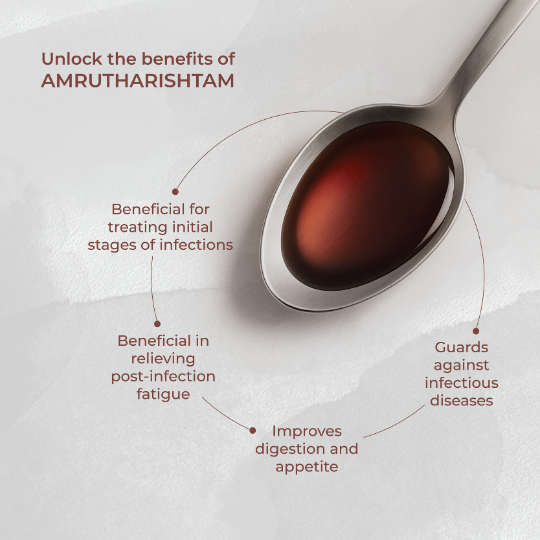Winter, whether it’s the crisp chill of Hemanta (early winter) or the sharper cold of Shishira (late winter), puts the body through a noticeable shift. You might feel hungrier, a little slower in the mornings, or more prone to catching colds as the temperature drops. Ayurveda considers seasonal transitions a sensitive time for immunity, which is why following a proper diet and lifestyle routine becomes essential. Ritucharya in Ayurveda is a set of guidelines that explain these seasonal shifts and how to support the body through them.
Winter is also the season when the body responds beautifully to nourishing foods, warm therapies, and immunity-supporting herbs. Incorporating the right Ayurveda formulations helps strengthen Agni, support respiratory wellness, and keep the doshas in balance through winter. With the right winter Ritucharya and the support of targeted Ayurveda products, you can maintain strong immunity, better digestion, and stable energy all season long.
Understanding Hemanta & Shishira Ritu
Cold weather, dry winds, and an innate desire for warmth and nourishment are the hallmarks of Hemanta (mid-November to mid-January) and Shishira (mid-January to mid-March). During these months:
- Tikta Rasa (bitter taste) and Akasha Mahabhuta dominate.
- The strength of a person is at its highest during Hemanta and early Shishira.
- Kapha deposition begins, while Agni remains strong, making heavier, nourishing foods easier to digest.
Diet Regimen for Hemanta & Shishira
- Winter demands foods that keep you warm, nourished, and grounded.
- Foods with Amla Rasa (sour taste) are ideal.
- Cereals and pulses like wheat, gram flour preparations, new rice, corn, etc.
- Ginger, Garlic, Haritaki, Pippali, Sugarcane products, Milk, and Milk products.
- Avoid Katu (pungent), Tikta (bitter), Kashaya (astringent) dominant foods, Laghu (light) and Shita (cold) foods, including cold drinks, refrigerated meals, and raw salads.
Lifestyle for Hemanta & Shishira
Lifestyle habits that promote warmth and aid in Kapha management are recommended by Ayurveda in winter.
- Body massage with warm oil and bathing in lukewarm water
- Remove the oil using an astringent rubbing powder (Udwartana) that contains chandan and saffron
- Wear heavy and warm clothes like wool, leather and silk
- Increase your exposure to sunlight and avoid cold wind
- Day-sleep is contraindicated
- Fumigate (Dhupana) your room with smoke from the embers of the herb aguru.
- Panchakarma therapies like Vamana, Virechana and Vasti can be undertaken under the guidance of an Ayurveda doctor
Dosha imbalance increases the body’s vulnerability to illness. When we don’t eat the right foods or follow the lifestyle suited to each season, our natural balance gets disturbed, leading to various diseases. By understanding and practising Ritucharya, we can support the body’s needs in each season and prevent these imbalances from occurring.
Ayurveda Medicines to Improve Your Immunity
Apart from lifestyle and dietary changes, including herbs that improve your immunity, can help you stay healthy during winter. Let us now explore some Ayurveda medicines for immunity:
- AyurVAID Chyavanaprasam – The most effective remedy for seasonal health issues, AyurVAID Chyavanaprasam is a powerful immunity enhancer rich in antioxidants. Created precisely according to the original classical recipe, it ensures maximum effectiveness and promotes respiratory health (Kasa–Svasa Hara) due to a potent blend of 40+ Rasayana herbs like Ashwagandha, Giloy, and Amla, and is sweetened with sulfate-free Marayoor Jaggery. Every spoon of AyurVAID Chyavanaprasam delivers the full goodness of traditional Chyavanaprasam combined with the modern assurance of purity and safety.

- AvestaAyurVAID Inflammation & Immunity Aid – The most effective support for managing everyday inflammation and strengthening immunity, AvestaAyurVAID Inflammation & Immunity Aid is a bioactive hydration drink powered by AmlaPure®, rich in antioxidants and natural Vitamin C. Created using scientifically validated Amla bioactive for maximum effectiveness, it helps reduce inflammation by regulating pro-inflammatory cytokines and supports gut health through improved digestion and nutrient absorption. With its clean, additive-free formulation and potent Amla concentration, every serving of AvestaAyurVAID Inflammation & Immunity Aid delivers the full goodness of nature’s most powerful fruit combined with the modern assurance of purity, safety, and efficacy.


- AyurVAID Haridrakhandam – The most trusted remedy for skin and respiratory allergies. AyurVAID Haridrakhandam includes turmeric, ginger, and amla to support natural immunity and combat seasonal triggers, without causing drowsiness. Traditionally used for Dadru Nashana (treating fungal skin infections), it reduces itching, rashes, sneezing, and runny nose/congestion, and because it is not habit forming, it is safe for long-term use.
- AyurVAID Amrutharishtam – A classical Ayurveda formulation for the initial onset of infections and post-infection weakness, AyurVAID Amrutharishtam supports those who feel fatigued, lack an appetite, have low vitality, or have sluggish digestion. Enriched with Giloy, Musta, Ginger, and other rejuvenating herbs, it builds the body, enhances digestion, restores metabolic balance, and builds vitality. Formulated with the traditional arishta fermentation process, assures enhanced potency, better absorption, and maintains effectiveness for recovery and wellness.


AyurVAID Medicines are India’s first and only TESTED SAFE Ayurveda range. Every batch is rigorously evaluated for heavy metals (lead, cadmium, mercury, arsenic), aflatoxins (B1, B2, G1, G2), and microbial load (including yeast, mould, E. coli, Salmonella, P. aeruginosa, and S. aureus). All results remain well within permissible limits, strictly adhering to API standards, ensuring purity, safety, and therapeutic integrity at every step.
Conclusion
Ayurveda reminds us that when we adjust our food and lifestyle to match the season, the body naturally becomes stronger, more resilient, and even shows it through healthier skin. Since the doshas shift with the weather, sticking to the same routine all year can throw things off and invite imbalance.
But winter doesn’t have to work against you. By following a simple Hemanta–Shishira Ritucharya, keeping yourself warm, choosing nourishing foods, and adding herbs for immune support, you help your body stay steady and energised through the colder months. Think of winter not as a struggle, but as a season that allows you to strengthen your system from within.






